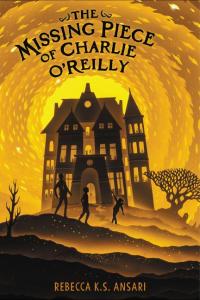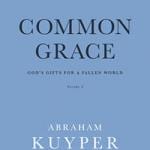I generally don’t keep up with the newest works on the YA world, and I think I’m mostly happier for it. But I realize that at times I’m missing some really excellent stuff, like Kelly Barnhill’s The Girl who Drank the Moon or (the subject of this review) Rebecca Ansari’s The Missing Piece of Charlie O’Reilly. I’m going to spoil the latter of these, and maybe someday will get around to reviewing/spoiling the former as well.

The short summary of a semi-complex book is that Charlie O’Reilly’s brother has gone missing, but no one else remembers that Charlie ever had a brother named “Liam.” Charlie thinks that the disappearance might be connected to the dreams he’s having of a young immigrant boy and his Irish family who move to America in the midst of their own loss. Along with his best friend Ana, Charlie finds that lots of children have disappeared from memory and existence when they wish they had never been born and are taken away to the old orphanage by a witch, where they stay until they turn 18 and disappear (though where they disappear to is also revealed in the story). Going undercover into the orphanage themselves, Charlie and Ana resolve to rescue Liam and escape the orphanage. And, well, I’m going to spoil the theme, but I’m not going to spoil the rest of the plot. Because this really is an excellent book and you should go read it.
Okay, spoiler alerts from here on out: the way to get out of the orphanage is by being forgiven. Which is an interesting idea, and one that has a lot of potential. Certainly as a Christian I have a vested interest in forgiveness both as an activity and as an idea. By definition as a Christian I am someone who has admitted my sin (i.e. my need for forgiveness for my rebellion against God) and who has believed in the completed work of Christ on the cross (and so has been forgiven for my sin because of the substitutionary atonement of another). So again, there’s a lot of potential here. And we see a bit of that potential when Charlie meets his other brother Jonathan, who was in the orphanage because he had accidentally shot a firework at Charlie and severely burned him.
But that’s not the direction the book goes. Instead, the big reveal is not just that forgiveness is needed, it’s that the individual child/young adult needs to forgive themselves. This is… more complicated. Especially when one of the students is there because he is a homosexual and was worried about his parents response. Aside from the traditional/contemporary sexual morality argument (which has largely been settled by the culture anyway), this is problematic by the rules established in the book. If being homosexual isn’t wrong–and clearly in the book it is not–then there is no ‘forgiveness’ needed, or even possible. Certainly there’s no self-forgiveness needed. ‘Self-acceptance’ may be appropriate, or forgiveness for the unaccepting parents (I don’t remember if anything was said about the parents’ response or not), but not forgiveness for one’s self.
And stepping away from that specific example, I’m not entirely sure this is just a blip in an otherwise excellent book. I think there’s a genuine problem in our modern culture. Conservatives have long decried the collapse of traditional morality and the rise of relativism, but what hasn’t really been on the radar for cultural conversation is the question of what happens to the act of forgiveness when there is no wrong. What does it mean to believe in ‘forgiveness’ when virtue is being true to yourself no matter what?
I don’t have answers to these questions, and what we see in The Missing Piece of Charlie O’Reilly is deeply unsatisfying. This is something those who follow contemporary culture more closely than I do need to spend some time digging in to. (Or maybe they already have, again I don’t really keep up.) And this book by Rebecca Ansari would seem to be a great place to start that particular conversation.
Dr. Coyle Neal is co-host of the City of Man Podcast an Amazon Associate (which is sometimes linked in this blog), and an Associate Professor of Political Science at Southwest Baptist University in Bolivar, MO











